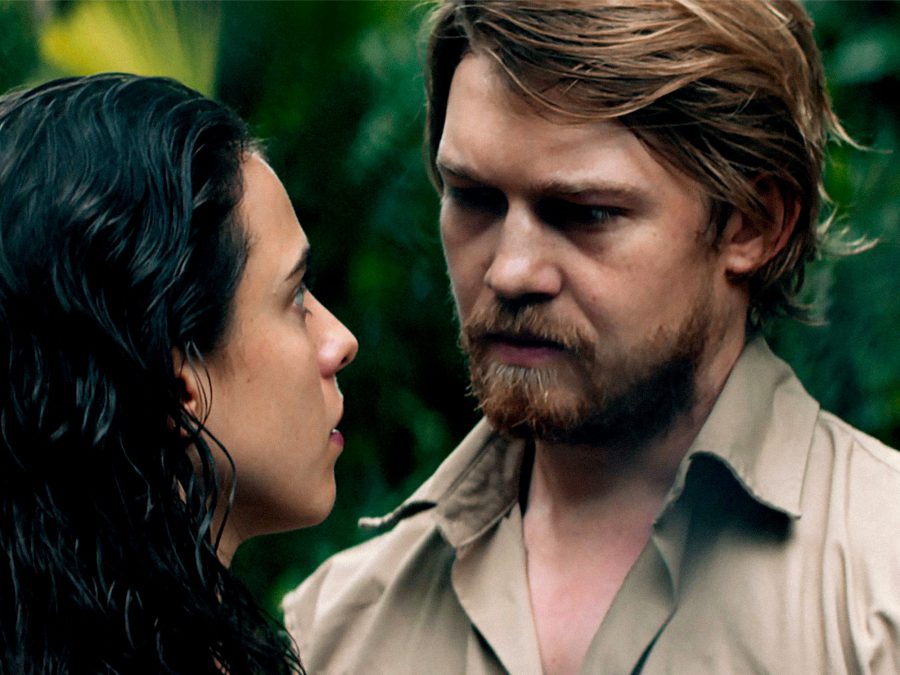Claire Denis adapts Denis Johnson’s 1986 novel about love in a time of revolution, with fascinating results.
Soaked in sweat and bathed in orange light, Claire Denis’s second English language feature, Stars at Noon, is a film that seems to exist in a state of permanent dusk. Characters are introduced in a relaxed, matter-of-fact manner, with names and occupations intentionally obscured. It doesn’t help that our heroine, Trish, played by Margaret Qualley, is constantly in a rum-induced haze.
Rail thin and running on alcohol and sex, Trish wears the disguise of a good time girl while quietly yearning to be saved from her situation. Stranded in Nicaragua after arriving on assignment as a journalist, Trish has basically given up on writing. All she seems to want to do is get out, with no choice but to bargain with the men around her for protection and survival. It’s a time of governmental and societal unrest in the country and no one seems to care about a wayward American woman in over her head.
Complicating matters is Daniel (Joe Alwyn), a mysterious Englishman in Nicaragua on business. The two meet, flirt, fuck, and then quickly become politically intertwined. The screenplay, written by Denis with Léa Mysius and Andrew Litvack, is deliberately sparse. We don’t know why Trish is stuck, we don’t know why Daniel seems to be a person of interest to the government there and we also don’t know why the two are so drawn to each other.

The novel the film is based on, written by Denis Johnson, originally took place during the Nicaraguan Revolution in 1984. Denis’s film takes place in present day, even acknowledging the COVID-19 pandemic with characters often being masked in public spaces. This is a significant change and yet, much like the book (which doesn’t even name the film’s central pair), the film refuses to directly reveal to the audience what exactly is going on. It’s the kind of story that one can only assess in the macro sense, without getting hung up on every minute detail.
Stars at Noon is most concerned with the movement of the lovers during their time together, with minimal, conversational dialogue in between. It’s unclear whether it’s love, lust, desperation or some combination of these elements that keep Trish and Daniel together. Qualley gives a full-bodied performance, throwing herself into the role of a woman running out of cards to play. Her drunk acting is especially noteworthy, drinking every other character under the table while still maintaining a brave sense of composure.
A coquette with a hard edge, Trish is the kind of character we don’t often see in modern cinema. She’s neither bad nor good: a truly neutral if somewhat chaotic presence. Alwyn is much more remote, going for withholding but often coming off as a blank slate. Still, there’s life in his eyes, and therein lies his charm. But ultimately, Stars at Noon is the story of a woman who doesn’t know where she’s going, and there’s something relatable and melancholic about her journey. Denis always excels at telling stories about complicated, opaque women. There’s beauty in the film’s brevity, but it still leaves you wanting more.
Little White Lies is committed to championing great movies and the talented people who make them.
Published 23 Jun 2023
A new film from one of the world’s greatest living directors limps to streaming in the UK.
Keeps its cards close to its chest, but powered by a fascinating central performance by Qualley.
Mysterious, opaque, probably worth revisiting down the road… a classic Claire Denis movie then.